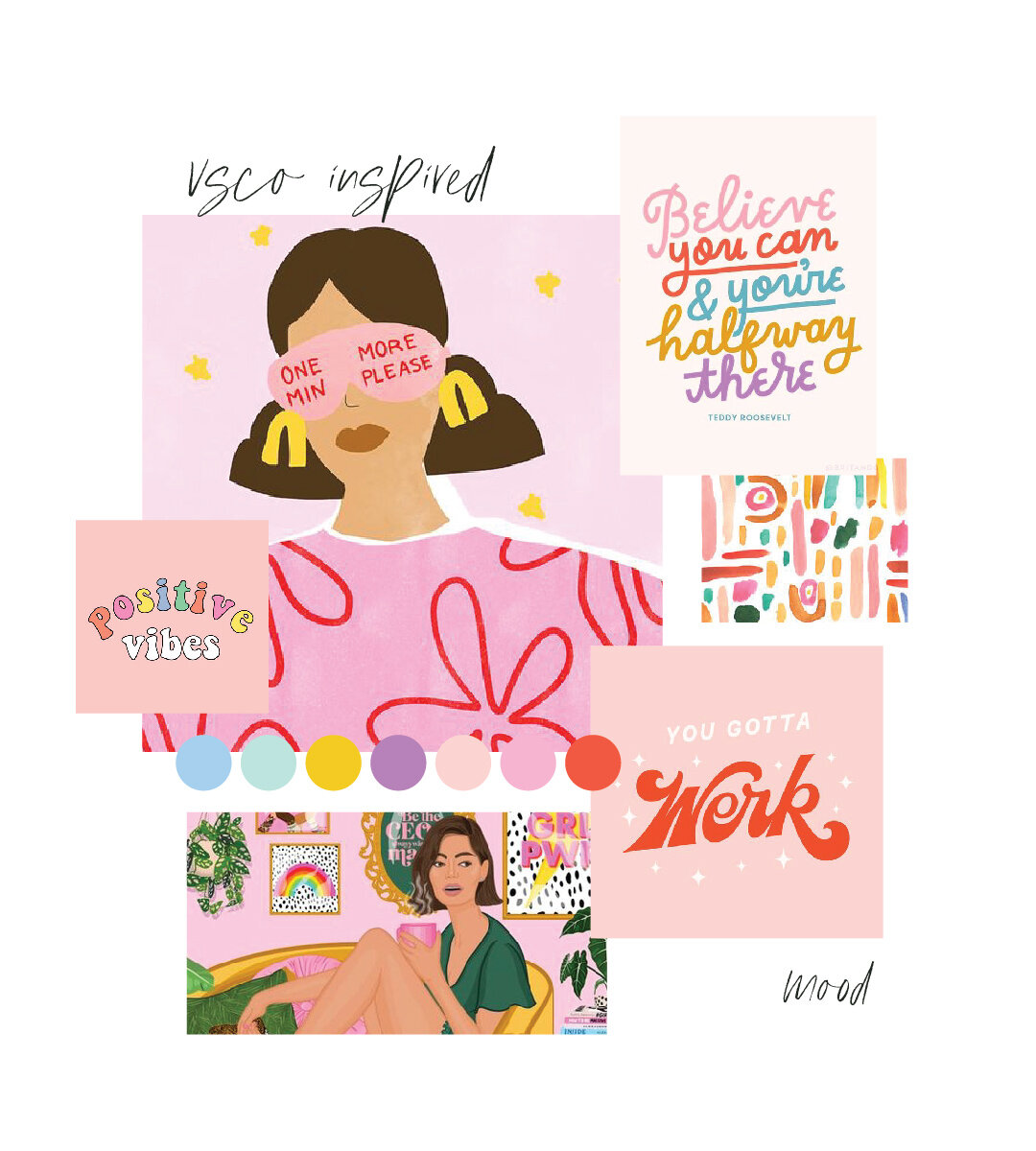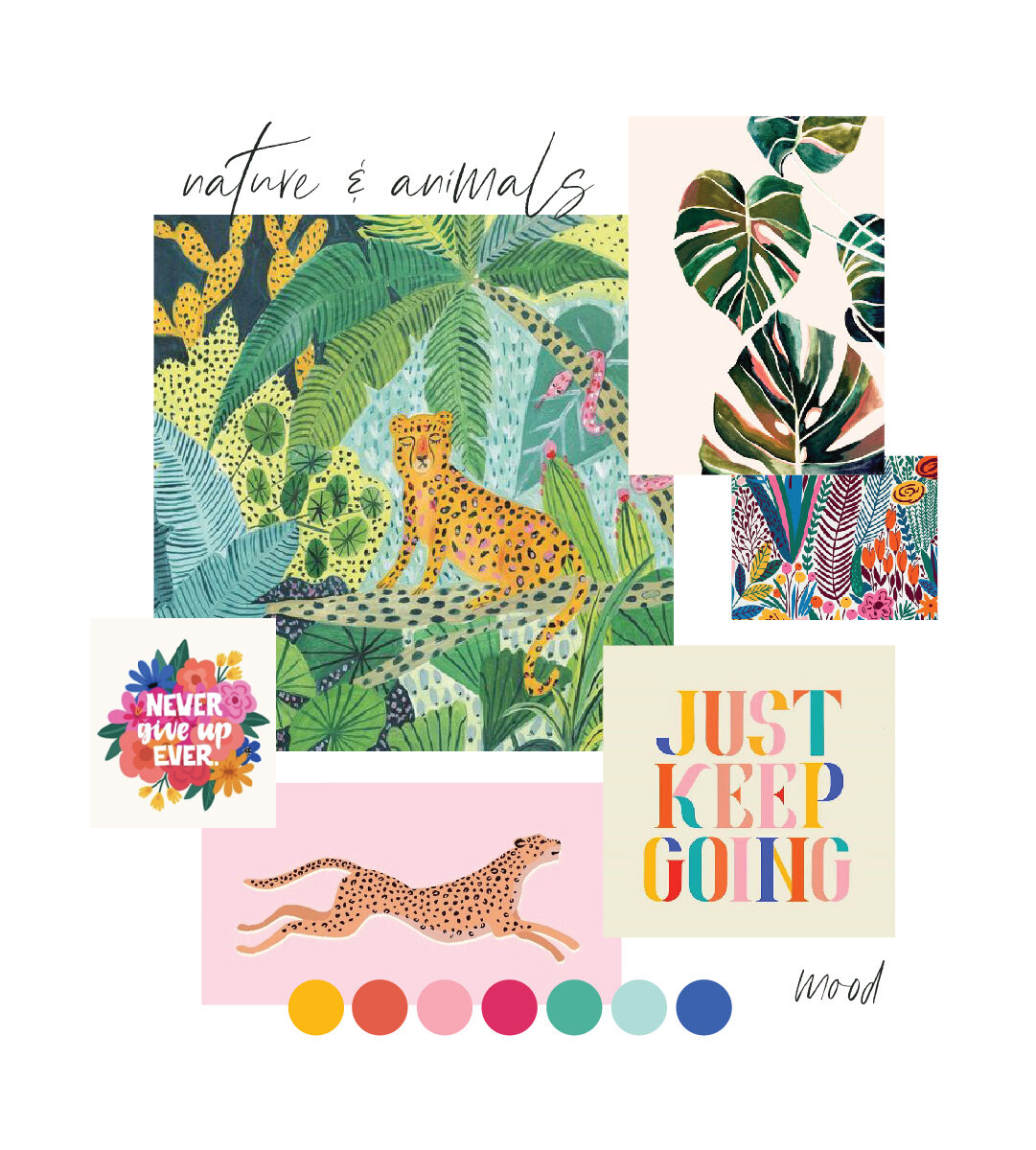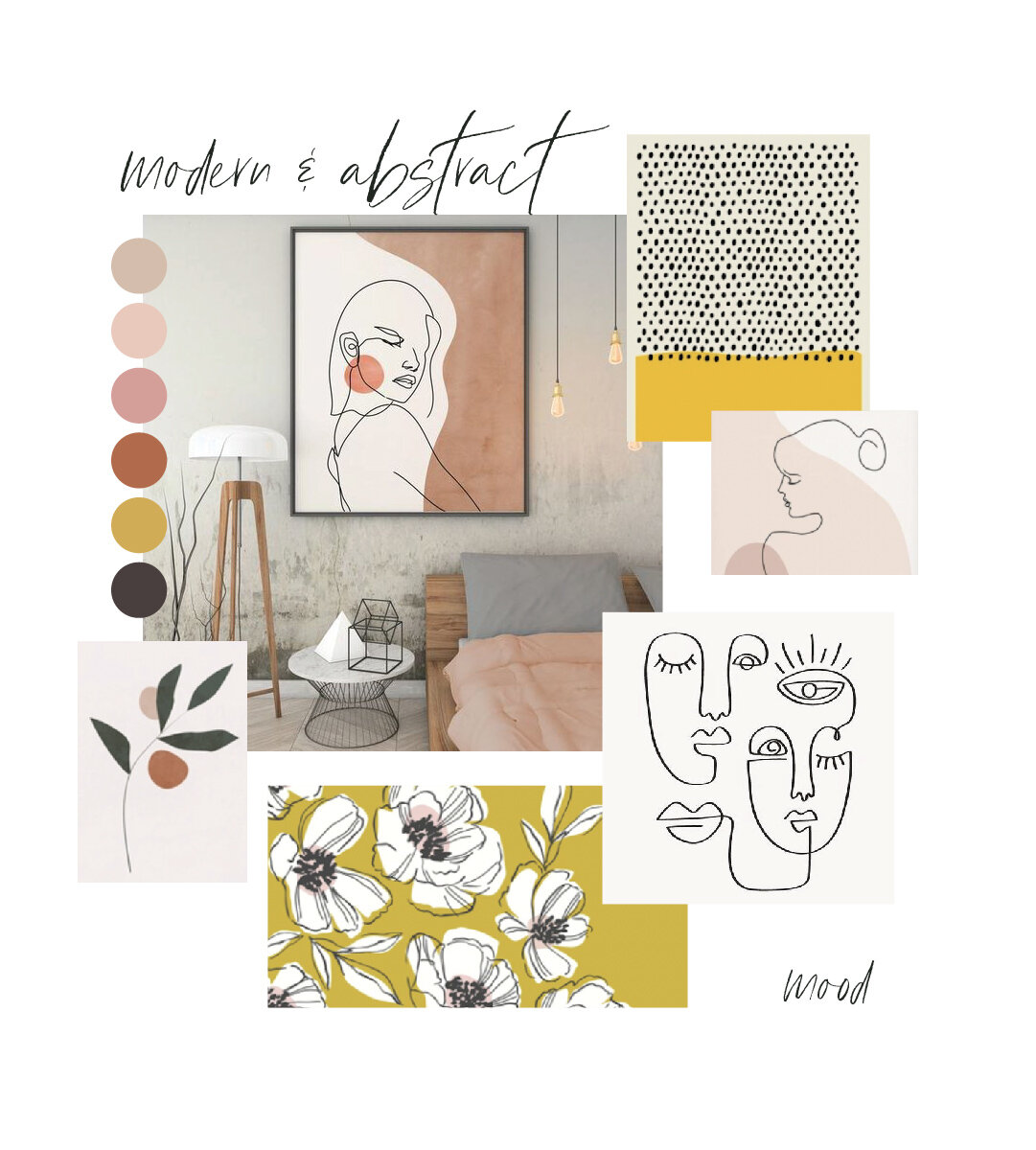Why Every Surface Designer Should Use a Moodboard
Moodboards are an amazing tool that can totally transform your design process. Whether you’re dreaming up fresh ideas, putting together a collection that feels cohesive, or pitching your work to clients, a moodboard helps bring clarity and focus to your creative journey. Let’s dive into why moodboards are such a game-changer and how they can help you level up your work.
1. Spark Your Creativity
Moodboards are like a playground for your imagination. They’re the perfect place to gather and organize all the inspiration that catches your eye—textures, patterns, color palettes, typography, photos—you name it! Seeing everything come together can spark unexpected ideas and lead to exciting new directions for your designs.
2. Pull Together a Cohesive Collection
If you want to show off your skills as a surface designer, creating a cohesive collection is key. Moodboards make it easy to define the vibe and style of your entire collection, ensuring everything feels connected. This not only makes your work visually appealing but also shows art directors you understand how a product line should flow.
Plus, cohesive collections are easier to sell. Art directors love when pieces work well together because it simplifies their job. They’re more likely to buy multiple designs from you, making your collection a win-win for everyone!
3. Stay on Track with Clear Art Direction
Think of a moodboard as your creative GPS. It sets the tone and mood for your designs, helping you stay aligned with your vision. Whether you’re working on a single piece or a big project, a moodboard keeps you grounded and ensures everything ties back to your original concept.
4. Communicate Clearly with Clients
Moodboards are also a lifesaver when working with clients. They let you visually share your creative approach, giving clients a sneak peek into your ideas. This helps everyone get on the same page from the start, reducing misunderstandings and building trust along the way.
5. Save Time and Avoid Revisions
By setting the visual direction early on, moodboards help you avoid endless revisions and second-guessing. When you and your client agree on a moodboard, you’ve already established the roadmap, making the rest of the process smoother and more efficient.
6. Stay Ahead of Trends
Moodboards make it easier to explore and incorporate current trends into your designs. By laying everything out visually, you can see how trends fit into your unique style. This keeps your work fresh and relevant while still feeling true to you. For designers looking to license their art or attract big-name clients, staying on-trend is a must!
7. Boost Confidence and Crush Creative Blocks
Feeling stuck? A moodboard can be your best friend. By narrowing down your inspiration, it gives you a clear starting point and a sense of direction. No more staring at a blank canvas—you’ll have a roadmap to guide you as you create.
Moodboards Make Your Work Stand Out
If you’re serious about impressing art directors and clients, moodboards are a must. They show that you’ve thought through your ideas, understand how to create collections that work, and can deliver designs that are ready for the market. A cohesive moodboard isn’t just a tool—it’s your secret weapon for making your art more sellable.
Final Thoughts
Using moodboards is like building on a solid foundation. Everything you create afterward will be more aligned, purposeful, and polished. Whether you’re aiming to license your art, pitch to freelance clients, or wow big-box retailers, a moodboard can help you shine.
So, if you’re not already using moodboards, now’s the perfect time to start! They’re fun to create and can take your designs to the next level—and beyond.
Take the Next Step with Moodboard to Market
Ready to finally sell your art and see it in huge retailers like Target, Homegoods and more? Check out my "Moodboard to Market" course! During this 8-week program I will teach you how to bridge the gap between inspiration and design by creating moodboards that lead to sellable, cohesive collections. We will build art together around a like minded community and learn to pitch to your dream clients! From identifying trends to translating ideas into marketable art, you’ll learn everything you need to build a portfolio that stands out. Let’s turn your creative vision into a collection that sells!






